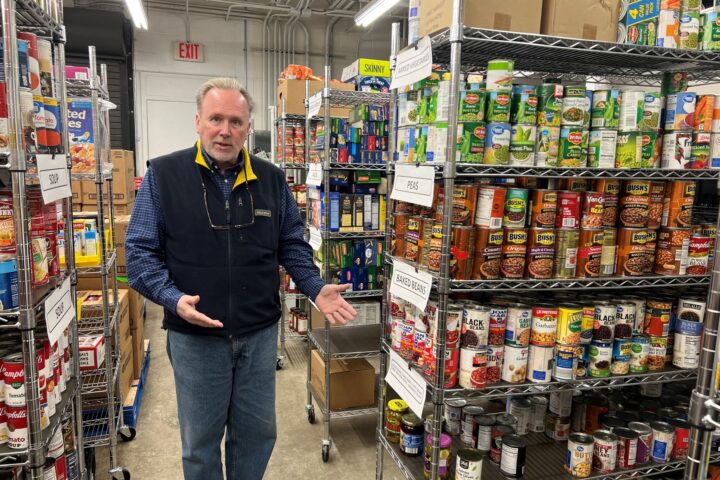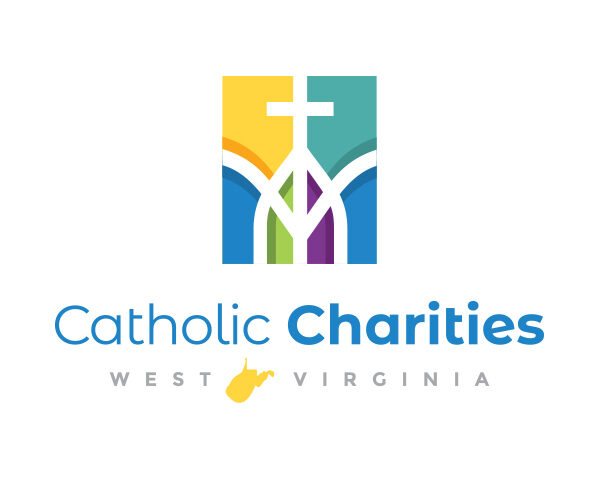
Over the past year, West Virginians have come together to rebuild in the aftermath of the deadly, historic flooding of June 2016. From day one, individuals, nonprofits, government agencies, businesses, schools, and churches – including many parishes in the Diocese of Wheeling-Charleston – responded with immense generosity by assisting with debris removal, mucking out homes, basic needs assistance, counseling, case management, and other forms of support. Catholic Charities West Virginia (CCWVa) is proud to be part of this support network, actively participating in the long-term recovery process and in the rebuilding of homes and lives and communities damaged by the floods.
On the evening of June 23, 2016, 86-year old Bessie Rice had settled in to watch her favorite television shows when flood waters rose faster than Bessie had ever seen in her lifetime. Neighbors rushed to her rescue by floating an inflatable children’s pool to her front door and whisking her to higher ground.

Just one street over, Matt and Connie Ward were not at home when the Cherry River began overflowing. Roads quickly became impassable, and they could not get to their children, one of whom is disabled.
“My son and my daughter’s nurse carried Janessa upstairs in her wheelchair when the water started getting up,” said Matt Ward.
Flood waters rose to more than four and a half feet on the first floor of the Ward family home.
Fortunately, Bessie and the Ward family were safe; however, their homes were devastated. At Bessie’s home, flood waters had destroyed the skirting around her mobile home, filled the crawlspace with mud, soaked insulation, and caused foundation blocks to sink and shift. At the Ward’s home, the water damage was so significant on the first floor that sheetrock needed to be replaced, the kitchen cabinets were ruined, and floors needed to be replaced and repaired.

Like many families whose lives were turned upside down by these floods, Bessie and the Ward family needed guidance and support on how to work through the long-term recovery process: starting with FEMA paperwork and continuing through the rebuilding phase. A CCWVa case manager worked with these families and others to guide them through this process, advocate on their behalf to funders and organizations offering help, and ensure that rebuilding work was done properly by volunteers and contractors.

Beyond case management, CCWVa Disaster Services has provided organizational development, support, and funding to the Long Term Recovery Committees (LTRCs) that formed in eight of the federally-declared disaster counties. An LTRC is a coalition of private businesses, faith-based organizations, nonprofits, and other community groups, which serves as the coordinating hub for disaster recovery in a particular county to spread resources effectively and prevent duplication of services.

Through grants and donations from individuals, groups, other dioceses, and collections from the Diocese of Wheeling-Charleston, CCWVa received more than $1 million for long-term flood recovery efforts. CCWVa has been able to provide quarterly and case-by-case funding to the LTRCs to aid in the recovery. CCWVa has also worked with the LTRCs on some special projects, such as the installation of HVAC units in Clay County with grant funding from Catholic Charities USA or the building of new homes in Roane County for which CCWVa provided funding for the foundations. In addition, CCWVa is one of only a few organizations currently providing funding to cases vetted by the Red Cross from non-federally-declared counties that also were impacted by the floods.
“CCWVa is such an amazing partner aiding the survivors of the June 23 floods here in West Virginia, not only through their financial generosity, but also through the love and support they have provided to us,” said Joe Ross, Roane County LTRC Chair. “I can’t thank CCWVa enough for all they have done for the people of Roane County. Without their help, none of this would be possible.”

Long-term disaster recovery work requires an all-hands-on-deck approach and strong partnerships. CCWVa has worked to strengthen partnerships with other organizations focused on disaster, Catholic parishes, other faith-based organizations, and the LTRCs during this past year. As Lora Pierce, CCWVa Director of Disaster Services, explained, “Constant communication and collaboration with partners have resulted in CCWVa support to over 200 fully recovered households at this time, impacting nearly 1,000 adults and children.”
Although much progress has been made in this past year, the road to recovery continues. CCWVa will be walking this road with families and communities for as long as it takes to help people rebuild their homes and lives.
“Catholic Charities has been there for us [from] start to finish,” said Janice Weatherholt and Susan Larkin. “The support your organization has shown is literally concrete, in that it is the very foundation of our new home and new life.”


